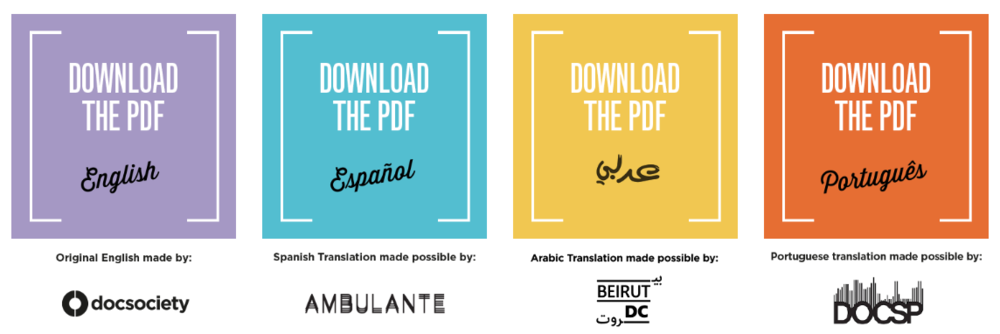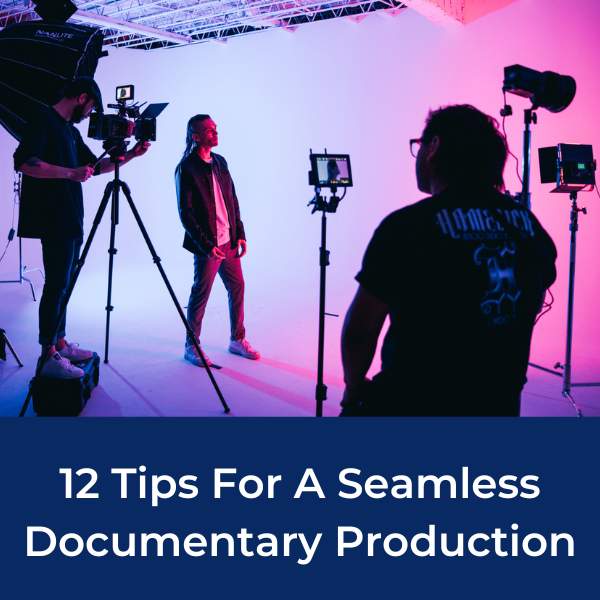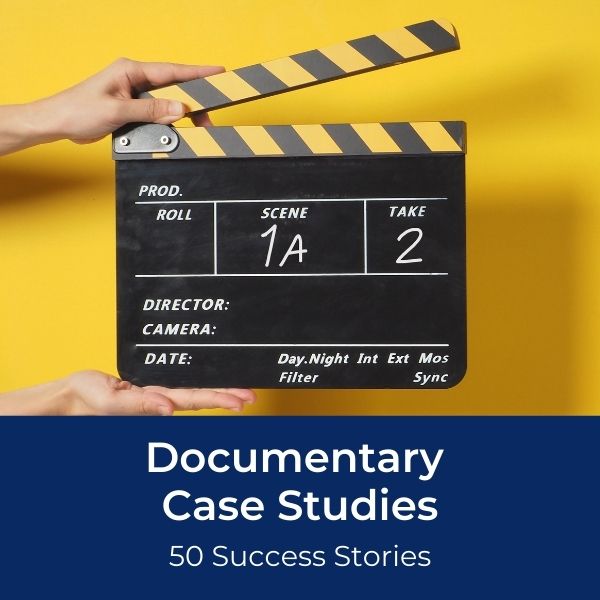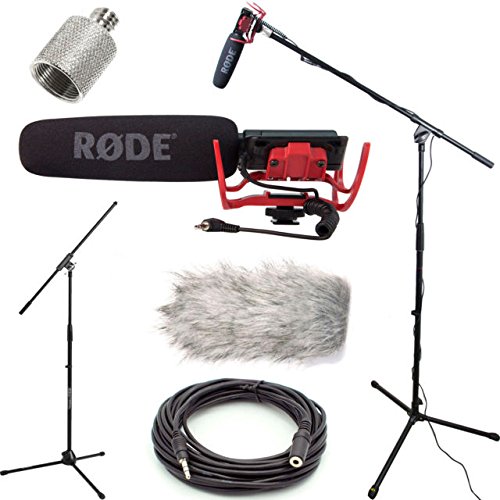What is a Documentary Impact Campaign?
(And is it the right choice for your documentary)

By Caitlin Cooper
Documentary Impact Campaign explained:
It’s hard to come by a documentary that doesn’t at least touch on a social issue.
Whether that’s an issue as big as climate change or as small as sending mail, documentaries are portraits of the things that impact the collective.
And as a result, a documentary becomes one more thing that we share. It connects us; as an audience, but also as a society.
Because of this connection, documentaries have a unique power to inspire change.
Starting with individuals.
And that’s the idea behind documentary impact.
Documentary impact is about defining what kind of impact a documentary can achieve, and seeking measurable results.
It’s about using the power of storytelling to its maximum benefit.
Sounds exciting, right?
Read on to learn what goes into a documentary impact campaign, examples of successful impact, and if an impact campaign is the right choice for your documentary.
Special thanks to Doc Society for their Impact Field Guide!
What is a Documentary Impact Campaign?
It’s one thing to make a documentary.
But what you do with that documentary is just as important.
There are lots of ways to think about your documentary’s impact.
For example, impact can mean inspiring a specific conversation. Or, offering a new perspective.
You can also seek more pointed or measurable impact, such as changing the behavior of your audience, reforming an institution, passing a law, or dismantling an outdated social norm.
These more tangible impacts are what make for a great documentary impact campaign.
Case Study: Tangible Impact from a Documentary
Watch the trailer for Bag It.
Take the film Bag It (2010), for example. This documentary shares the story of a person who makes it their personal mission to stop using plastic bags at the grocery store.
Today, this almost seems old fashioned. I mean, is anyone still using plastic grocery bags?
Well, we might have Bag It’s impact campaign to thank for our habits today.
Bag It chose to design a campaign around the film’s potential to raise awareness on the issue of mass plastic consumption.
How did they make that awareness tangible?
- The Bag It team held 863 educational and community screenings.
- They designed a 20-page curriculum guide for schools.
- They created an online resource for plastic pollution solutions (www.bagitmovie.com)
- And… the film was cited as an influence in the passing of a bag ban in Aspen, Colorado. Communities in Seattle, WA, Los Angeles, CA, Portland, OR, Kaua’i County, HI, and Santa Monica, CA also used Bag It to help pass bag legislation.
That’s documentary impact. 💪
The 4 Kinds of Documentary Impact
Doc Society defines four impact dynamics or kinds of impact that films can drive. They are:
- Changing minds
- Changing behaviors
- Building communities
- Changing structures
Your film can choose to pursue one, two, three or all four kinds of impact.
So, how do you choose?
First, you need to get clear on what you want your film to do.
Here are a few questions that can help you brainstorm:
1. How did you find the story? Why did you make the commitment to it?
2. What is the emotion that you want your audience to leave with? As a follow-up question: What do people normally do when they feel that emotion? For example, anger might inspire people to change a behavior. Love may inspire people to build community.
3. What are the issues that your film addresses?
4. What is the current environment (political, social, cultural) surrounding those issues?
5. In terms of impact, what would feel like a success to you?
What Goes Into a Documentary Impact Campaign?
So, you know what you want your film to do. Now, what actually goes into an impact campaign?
A documentary impact campaign requires that you define the following:
- Who needs to see your film
- What audiences need to do
- What partnerships, tools and resources are needed to reach the desired goals of the campaign
In other words, an impact campaign takes a documentary and creates a strategy from it.
The first step to creating an impact strategy is to study your story’s environment.
Most documentaries fall within one of the following environments:
1. They reveal: the film takes a completely unknown issue and reveals it to the audience.
2. They investigate: the film takes a hidden, but known, issue with strong opposition and investigates it further.
3. They spotlight: the film takes a known, but tired, issue and brings it back into the public eye.
4. They humanize: the film takes a known, and often weaponized, issue and, instead of offering new facts or information, puts the focus back on the humans most impacted by the issue.
Once you understand your story environment, you can identify appropriate impact goals.
Take a look at the following case studies for examples of how to study your story’s environment.
Story environment: REVEAL
Blackfish (2013)
Unknown issue: What happens to whales in captivity.
Impact goals: To bring this issue into mainstream consciousness and pressure SeaWorld to change some of their more archaic practices, such as breeding whales in captivity.
Story environment: INVESTIGATE
9.70 (2013)
Known issue: Resolution 9.70 between the United States and Colombia to control the seeds Colombian farmers may use for agriculture.
Impact goals: Raise consciousness about how Resolution 9.70 impacts food sovereignty for farmers in Colombia and repeal the resolution.
Story environment: SPOTLIGHT
An American Promise (2013)
Known issue: African American males have among the bleakest educational outcomes in the United States.
Impact goals: Raise awareness of implicit bias in the American education system, foster greater sensitivity in educators, inform parents and caregivers of how to better support their children, influence policymakers.
Story environment: HUMANIZE
Unearthed (2014)
Known issue: The fracking boom led by multinational companies in South Africa.
Impact goals: Inform local communities of the environmental impacts of fracking projects, encourage locals to voice their opinions and form part of the international debate on fracking.
Check out Doc Society’s FREE Strategic Plan Worksheet.
And don’t miss their invaluable collection of case studies here.
Examples of Successful Documentary Impact Campaigns
Take a look at the below videos to learn more about how these filmmakers harnessed the power of documentary impact across three completely different stories.
Please Remember Me (2015)
Thank You For The Rain (2017)
Away From Meaning (2018)
Next Steps
There are so many good reasons to pursue an impact campaign for your documentary.
If the story begs more than just a film… then an impact campaign could be the right way to go!
The great news is that you can design an impact campaign for any documentary - no matter if it’s 5 minutes or 50 minutes long.
Doc Society mentions that short docs are especially powerful for igniting change, partly due to the ease of viewing and sharing short-form videos.
Ready to make a change?
Resources:
- Doc Society's Impact Field Guide (PDF)
- Doc Society’s FREE Strategic Plan Worksheet
- Documentary Film Impact Case Studies
- Documentary Sales & Distribution: Selling Your Film For Maximum Profit And Impact (Course)
Additional Documentary Resources
Ready To Make Your Dream Documentary?
Sign up for our exclusive 7-day crash course and learn step-by-step how to make a documentary from idea to completed movie!






















